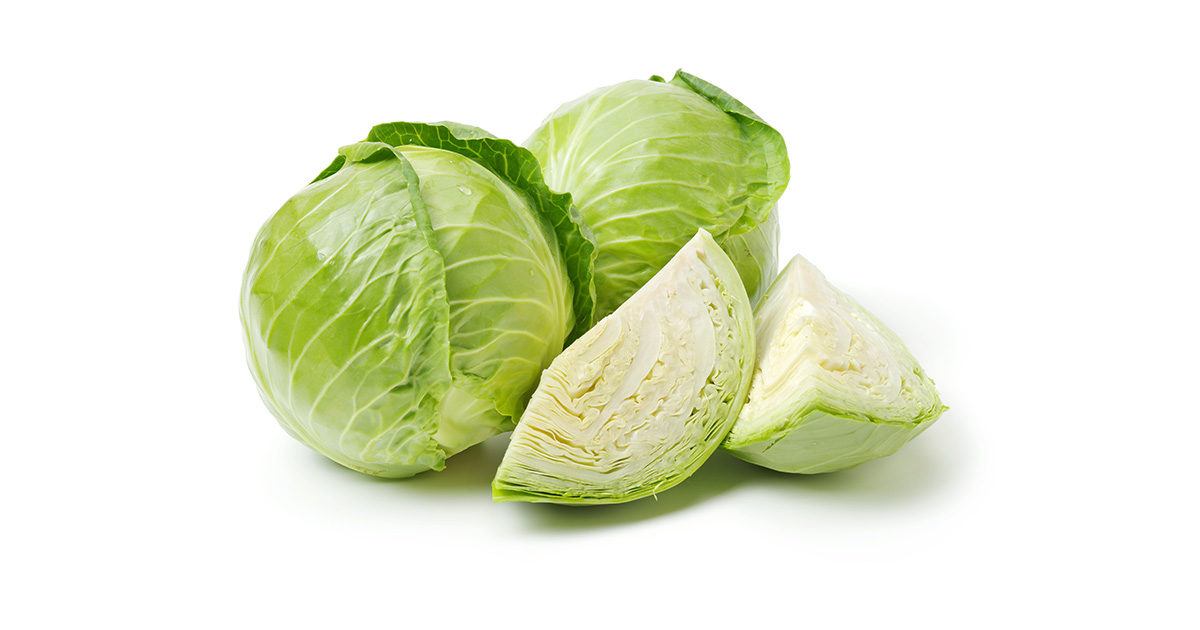
White cabbage might seem like a humble vegetable, but it's packed with surprises! Did you know that this leafy green is a powerhouse of vitamins and minerals? Rich in Vitamin C, it helps boost your immune system and keeps your skin glowing. Plus, it's low in calories, making it a great addition to any diet. White cabbage isn't just for coleslaw; you can use it in soups, stir-fries, and even as a wrap for your favorite fillings. Fermented cabbage, known as sauerkraut, offers probiotics that aid digestion. Ready to learn more? Here are 25 fascinating facts about white cabbage!
Key Takeaways:
- White cabbage is a low-calorie, nutrient-packed vegetable that promotes gut health and aids in weight loss. It's also a versatile ingredient in various cuisines, from sauerkraut to Asian stir-fries.
- With its rich history, white cabbage has been used for over 4,000 years and has some quirky uses, like being a hangover cure in ancient Rome and a natural fabric dye. It's not just a vegetable; it's a fascinating part of human culture.
What is White Cabbage?
White cabbage, also known as Dutch cabbage, is a leafy vegetable that belongs to the Brassica family. It's a staple in many cuisines around the world due to its versatility and nutritional benefits. Let's dive into some fascinating facts about this humble vegetable.
-
White cabbage is rich in vitamins C and K, which are essential for immune function and bone health.
-
It contains antioxidants like polyphenols and sulfur compounds that help protect cells from damage.
-
This vegetable is low in calories, making it a great addition to weight-loss diets.
-
White cabbage is a good source of dietary fiber, aiding in digestion and promoting a healthy gut.
-
It has been cultivated for over 4,000 years, with origins tracing back to Europe.
Nutritional Benefits of White Cabbage
White cabbage isn't just tasty; it's packed with nutrients that can benefit your health in numerous ways. Here are some key nutritional facts.
-
One cup of chopped white cabbage contains only about 22 calories.
-
It provides about 54% of the recommended daily intake of vitamin C.
-
White cabbage is also a good source of folate, which is crucial for DNA synthesis and repair.
-
It contains small amounts of iron, which is important for transporting oxygen in the blood.
-
The vegetable is rich in manganese, a mineral that helps with bone formation and nutrient absorption.
Culinary Uses of White Cabbage
White cabbage is incredibly versatile in the kitchen. From salads to soups, it can be used in a variety of dishes. Here are some interesting culinary facts.
-
Sauerkraut, a popular fermented food, is made from white cabbage.
-
It can be eaten raw, cooked, steamed, or pickled.
-
White cabbage is a key ingredient in coleslaw, a popular side dish.
-
In Asian cuisine, it is often used in stir-fries and dumplings.
-
It can be stuffed with meat and rice to make delicious cabbage rolls.
Growing White Cabbage
If you have a green thumb, you might be interested in growing your own white cabbage. Here are some facts about its cultivation.
-
White cabbage prefers cool weather and can be grown in both spring and fall.
-
It requires well-drained soil rich in organic matter.
-
The vegetable needs consistent watering to thrive.
-
It takes about 70 to 100 days from planting to harvest.
-
Pests like cabbage worms and aphids can affect its growth, so regular monitoring is essential.
Fun Facts About White Cabbage
White cabbage has some quirky and fun aspects that you might not know. Let's explore some of these interesting tidbits.
-
In ancient Rome, white cabbage was used as a hangover cure.
-
The largest cabbage ever grown weighed over 138 pounds.
-
White cabbage is often used in traditional medicine to treat ulcers and inflammation.
-
It can be used as a natural dye for fabrics.
-
In folklore, it was believed that babies were born in cabbage patches.
The Final Bite on White Cabbage
White cabbage isn't just a crunchy addition to your salad. Packed with vitamins, minerals, and antioxidants, it’s a powerhouse for your health. From boosting your immune system to aiding digestion, this humble veggie offers numerous benefits. Plus, it’s versatile in the kitchen—think coleslaw, sauerkraut, or even cabbage rolls.
Growing your own? White cabbage is relatively easy to cultivate, making it a great choice for home gardeners. Remember, it thrives in cooler weather and needs plenty of water.
Whether you’re looking to improve your diet or add a new plant to your garden, white cabbage is a fantastic option. So next time you’re at the grocery store, grab a head of white cabbage and enjoy all the benefits it has to offer.
Frequently Asked Questions
Was this page helpful?
Our commitment to delivering trustworthy and engaging content is at the heart of what we do. Each fact on our site is contributed by real users like you, bringing a wealth of diverse insights and information. To ensure the highest standards of accuracy and reliability, our dedicated editors meticulously review each submission. This process guarantees that the facts we share are not only fascinating but also credible. Trust in our commitment to quality and authenticity as you explore and learn with us.


